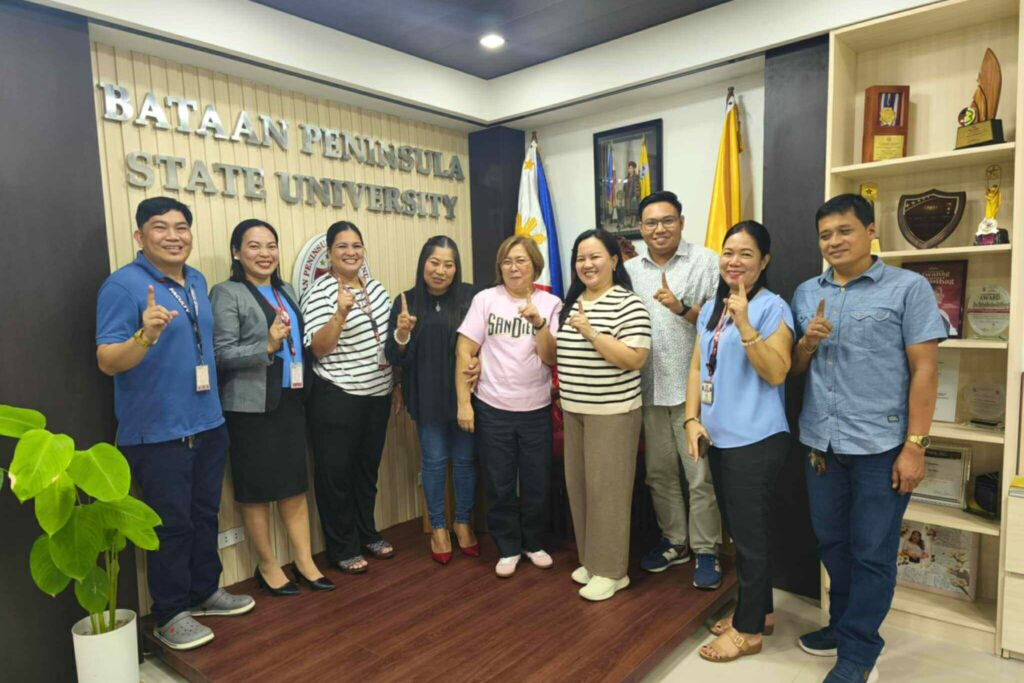
Rizal Technological University (RTU) and Bataan Peninsula State University (BPSU) held a meeting of minds on July 16, 2025, at the BPSU Main Campus in Balanga, Bataan, as part of RTU’s continuing efforts to enhance the implementation of its Industrial Technology program at its Pasig Branch, and its upcoming tertiary education programs for persons deprived of liberty (PDLs) in collaboration with the Bureau of Jail Management and Penology (BJMP).
The RTU delegation was led by Dr. Ma. Eugenia M. Yangco, University President; Dr. Kristine Y. Opulencia, Special Assistant to the President on RTU Pasig Branch Transition; and Instr. Ricardo H. Momongan, Jr., Director of the Extension and Community Services Office.
The University representatives were warmly welcomed by BPSU key officials headed by Dr. Ruby B. Santos-Matibag, University President; Dr. Lara Velasco-Dela Cruz, Vice President for Academic Affairs; Dr. Rowena Valerio, Dean of the College of Technology; and Dr. Bernadeth G. Gabor, Director of the Extension and Training Services Office. Faculty members of the College of Technology also joined the session to share practical experiences and implementation insights.
With RTU’s program for PDLs now ready for launch and implementation, the visit served as a benchmarking activity to learn from BPSU’s best practices as a pioneer in providing tertiary education and extension programs within BJMP facilities.
In addition, RTU also benchmarked the College of Technology’s strategies in complying with the minimum requirements for offering academic programs, especially in securing the Certificate of Program Compliance (COPC) from the Commission on Higher Education (CHED). This aspect is crucial as RTU finalizes its own documentation and quality assurance systems for both campus-based and jail-based academic programs.
Discussions focused on key areas such as curriculum delivery in correctional settings, stakeholder coordination, faculty deployment, and quality assurance measures to ensure sustainability and compliance with regulatory standards.
The meeting reflects the shared commitment of both universities to promote inclusive and quality education, foster community transformation, and strengthen partnerships among State Universities and Colleges (SUCs) for national development.




